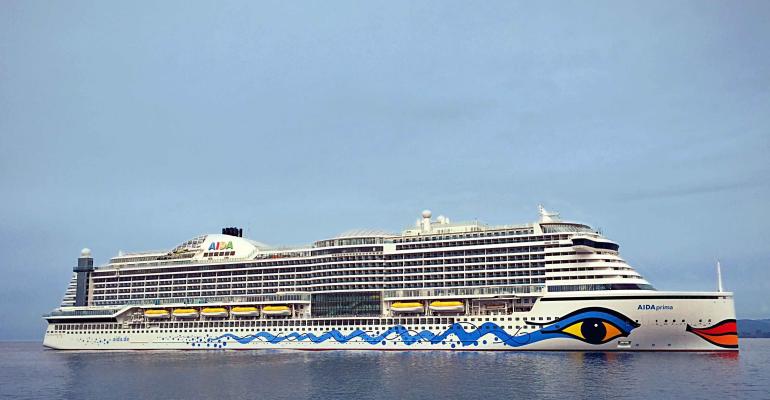AIDA Cruises took the opportunity to urge the support of ports and LNG producers in its endeavors.
'We believe in LNG as the fuel with the lowest emissions that is currently available and have been performing pioneering work in this area for many years,' Monika Griefahn, chief sustainable officer, AIDA, said during the trade conference. The gathering drew experts from Germany, Norway and the Netherlands. Among them were Dirk Brengelmann, Germany's ambassador to the Netherlands, and his Norwegian colleague Martin Sørby.
Griefahn noted AIDA is building ships that will be fully powered by LNG. The first is scheduled to arrive from Meyer Werft in 2019.
'We are pleased that other cruise lines are now also following our example and have ordered new constructions with LNG fuel as well,' Griefahn said. 'However, we also need the support of the ports and LNG producers to invest in the necessary infrastructure.'
After the first successful test run for the LNG supply of AIDAprima in Hamburg on May 7 last year, the ship is successfully being provided with LNG while docked at all ports on its route—Hamburg, Rotterdam, Le Havre, Southampton and Zeebrugge.
Since an AIDA ship spends about 40% of its operating time in a port, this means a significant reduction in harmful emissions. Compared to using conventional marine diesel with 0.1% sulfur content, emissions are reduced even further by using LNG. Sulfur oxides and soot particles can be prevented completely, while nitrogen oxide is reduced by up to 80% and carbon dioxide emissions are lowered by 20%.
In AIDA's other LNG-related work, the company collaborated with Becker Marine Systems in 2013 to develop and launch an LNG hybrid barge in Hamburg. This innovative and flexible solution provides clean energy to the ships using LNG when they're docked in the German city. Since May 30, 2015, AIDAsol has been supplied with low-emission power from LNG at the Hafencity Cruise Terminal. In 2016 this entailed 16 calls.
The ships in the AIDA fleet use three liters of fuel on average per person for a 100-kilometer trip, confirmed by DNV GL in an independent study in 2012. Griefahn noted additional progress was made by 2016 when 9% less energy per person was used. During the same period, she said, CO2 emissions decreased by 7.7%.
Copyright © 2024. All rights reserved. Seatrade, a trading name of Informa Markets (UK) Limited. Add Seatrade Cruise News to your Google News feed.


